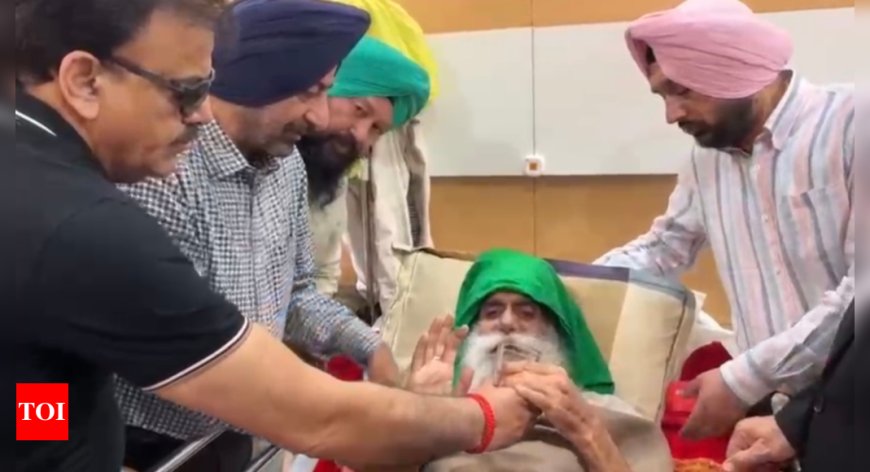Kisan Neta Dallewal Ends Hunger Strike After 131 Days
News by dharmyuddh.com
Introduction
The recent news surrounding Kisan Neta Dallewal has caught the attention of farmers and the entire agricultural community in India. After a grueling 131 days of hunger strike, Dallewal has finally ended his protest, bringing to the forefront the various issues that farmers continue to face. This article delves into the reasons behind his hunger strike, its implications on the farmers' movement, and the broader agricultural policies in India.
The Purpose of the Hunger Strike
Dallewal initiated his hunger strike as a form of protest against the government’s handling of farmers’ issues, including a demand for fair compensation, debt relief, and the repeal of laws deemed detrimental to the agricultural community. His unwavering commitment over more than four months has sparked significant support from fellow farmers and activists across the country.
The Reaction from Farmers and Supporters
During the course of his hunger strike, Dallewal garnered immense support from various farmer unions and civil rights groups. Many rallying behind him have praised his determination, viewing it as symbolic resistance against oppressive agricultural policies. This collective anger has reignited conversations around agrarian reform and the need for sustainable farming practices.
The End of the Hunger Strike
After 131 long days, Dallewal ended his hunger strike on a hopeful note, cautiously optimistic that discussions with the government could lead to meaningful changes. His resolution marks a significant moment for protest movements in India, as it highlights the urgent need for dialogue between policymakers and the farming community.
The Implications for Government and Policies
The conclusion of Dallewal's hunger strike is not just an event in the calendar; it is a call to action for the government to prioritize agricultural issues. The urgency for policies that ensure the welfare of farmers remains paramount, and stakeholders must come together for sustainable solutions. As this situation unfolds, many are watching closely to see how the government will respond.
Conclusion
The end of Kisan Neta Dallewal’s 131-day hunger strike sends ripples across the agricultural landscape of India. It emphasizes the ongoing struggle for farmers' rights and the pressing need for comprehensive policy changes. The commitment shown by Dallewal serves as an enduring testament to the resilience of farmers and the importance of their voices in shaping agricultural policies.
Keywords: Kisan Neta Dallewal hunger strike news, Dallewal ends hunger strike, farmers protest in India, agricultural issues farmers, government policy on agriculture, hunger strike movement, agrarian reforms in India, support for farmers, Dallewal protest impact.
For more updates, visit dharmyuddh.com.








